This interview first appeared on the website, Zero Hedge under the title, “Is Denmark On The Brink?” by Erico Matias Tavares via Sinclair & Co. We are reproducing it here with Iben Thranholm’s permission, in order to provide our readers with a view of the religious (or non-religious) atmosphere in Western Europe today by a Danish citizen, and her startling conclusions based on the reality of faith.
* * *
Iben Thranholm examines political and social events with focus on their religious aspects, significance and moral implications. She is one of Denmark’s most widely read columnists on such matters. Thranholm is a former editor and radio host at the Danish Broadcasting Corporation (DR), at which she created a religious news program that set a new standard for religious analysis in the newsroom. She has traveled extensively in the Middle East, Italy, the United States and Russia to carry out research and interviews. She has been awarded for her investigative research into Danish media coverage of religious issues.
—Iben, thank you for being with us today. Over a year ago we talked to Dr. Tino Sanandaji, an economics professor at a leading Swedish university, on the inconsistencies of Swedish immigration policies. The resulting post was hit, revealing a significant interest for this topic.
In a sense Sweden is the canary in the coalmine of Europe’s demographic future, since they have been at the forefront of this transformation and openly embrace it. Being a close neighbor we would like to get your views on what is happening there, as well as in Denmark. How do the Danes look at Sweden, with hope or apprehension?
—With absolute horror!
The Swedish media, which is quite pro-government and its leftwing policies, does not always report the full extent of the problems in their society. So it is hard to have a very accurate picture of what is going on. But we in Denmark have a good sense. We are very aware of the murders, rapes, riots, violence and the hand grenades that go on there. This does not often make the news but we know it is going on. And we don’t want to go down the same route.
This is the result of decades of policies promoting multiculturalism in Sweden. And what is left is this hollow house. You know, in the Bible it is said that if a house is left swept, tidied and unoccupied it eventually it will be taken over by evil. And I fear that this is what is happening in Sweden. Far from being a multicultural paradise, the problems can no longer remain hidden.
—Indeed, even President Trump made some controversial comments about Sweden at a recent rally in the US, causing an international uproar, with many debates on whether he was right or wrong. Did this cause some discussion in Denmark as well?
—It wasn’t much of a discussion because we in Denmark know what is happening in Sweden. Malmo is very close so we only need to go there to see it with our own eyes.
There was a TV ad partially paid by the Swedish government recommending that all Swedes integrate into this new multicultural society they are creating. Think about that. Even old Swedes now need to adjust to this new reality, instead of immigrants adapting to Swedish society. They call it “Det nya landet”, which means the new country. Traditional Sweden is gone.
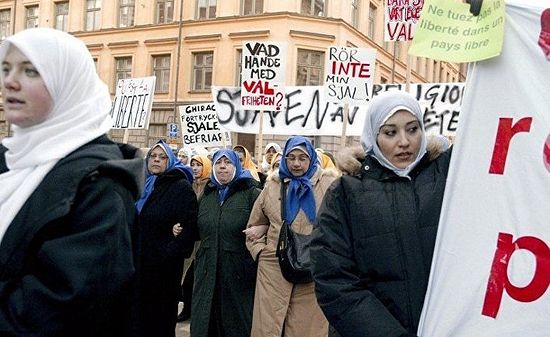 Protest by Muslims against a bill to ban the wearing of the hijab in French schools, Stockholm. Photo: Inosmi.ru
Protest by Muslims against a bill to ban the wearing of the hijab in French schools, Stockholm. Photo: Inosmi.ru
—Swedes and Danes share many cultural traits. What explains this divergence in opinions? Is it because you do not face the same societal problems?
—We are not as politically correct as the Swedes. So there is a lot of discussion here. (…) As such we have a greater awareness of our heritage and tend to be more protective of it.
Which is not to say we don’t have problems. We do. We face the same identity issues, and our traditions—in particular our Christian heritage—are fast disappearing from our society. That same hollowness is now becoming mainstream in Denmark. And this eliminates much of the arguments to defend ourselves against the importation of foreign values and customs, many of which are at odds with our own. Simply forbidding things will not change this reality.
—And how has integration been? Seems to be going better than other European countries since we don’t hear much about “no-go” zones and riots in your country, unlike France and Sweden, for instance.
—We have those problems as well but because Denmark is a small country, you won’t hear about them as much.
We have this belief here that welfare is the solution for everything. No matter who comes here from whatever part of the world, he or she will get housing, work, entertainment and healthcare. The government will give those to you with the expectation that if you have all those things you will happily assimilate into Danish society, learn Danish and adapt to our culture. As a result we will become a vibrant multicultural society.
The reality is quite different. The relativism that this multiculturalism engenders ends up putting different sides of society at odds with each other, especially when their values and beliefs are very different to begin with.
When immigrants come to Denmark they may be taken care of, but they have no dominant culture that they can assimilate into, certainly not in the religious sense. We are completely devoid of God. And as a result they end up bringing elements of their culture and religion, which often create friction, misunderstandings and also crime. So Danish society becomes more and more divided as a result.
—Politicians seem to be getting the message. Your parliament recently passed legislation to ensure that immigration would never reach a level that would threaten Danish national identity. What do you make of this?
—We have a very divided society here as well, even without considering the waves of immigration that have recently settled here.
Half of the population wants open borders, mass immigration and welfare for all. They reject traditional values and are very much in favor of globalism and multiculturalism. The other half is very much opposed to that, but they lack any persuasive arguments to support their position. All they can do is forbid immigration, forbid women from wearing a head cloth and so on.
We no longer have a moral compass. Before, Christianity provided this role, keeping us united over centuries. Now we can no longer distinguish between good and evil, and ultimately this is what this struggle comes down to. Without this, any preventive measures like this are just quick fixes that will not solve anything over the longer term. What is needed is a positive alternative in a moral sense.
—Are there any data or independent studies on the benefits and costs of immigration in Denmark? In Sweden for instance this topic is almost taboo, but there are many concerns in terms of finding good employment opportunities for immigrants, coming from the immigrants themselves in fact.
—With this new culture we have adopted in the West we have stopped having enough children to support our welfare state. So yes, one argument is that we need more people to support it.
In our own very secular society the state is God. It is supposed to provide and care for everybody. So the economic arguments become less relevant. Of course they are a consideration, since people are paying for these policies, but in a sense they are secondary.
—We are on the cusp of an automation wave that threatens to displace millions of workers across the developed world. This will raise even more concerns regarding mass immigration, which traditionally consists of lower skilled workers. Is there any discussion in Denmark about this?
—No. The only discussion is around the cultural aspect, namely the impact on our values and traditions.
And in a sense this just shows how weak we are. For instance, there are only 250,000 Muslims in Denmark, a tiny minority. And yet the majority of our political debates focusing on culture over the last ten years have largely revolved around Islam. That’s how weak our culture has become.
So while as an open society there is resistance to women having to cover themselves up, having separate swimming pools for men and women and so forth, we have lost the argument to combat these imported traditions largely because we have lost our Christian roots and values. So over time they will become more prevalent in our society. We are already seeing it.
—Secular Muslims may also lose out a result. Many cherish Western values but will increasingly find a native society that is at odds with them, as their own communities become more extremist. Many complain that the Islam in Denmark and other European countries is more hardcore or even radical than in their home countries.
—That is true. And again that is largely a result of this cultural hesitation in the societies that host them. As a result, those more aggressive forms gain more ground to the detriment of everyone, especially women.
—Much of the developing world faces a difficult situation, and undoubtedly the countries that can help should. Let’s face it, faulty Western foreign policies have made bad situations even worse across much of the Middle East, although other very important sectarian and ethnic conflicts play a large role as well.
There are those who suggest that instead of opening the borders this help should be provided at the origin, which would be cheaper and thus could help many more people, would place refugees closer to their homes and avoid many of the social problems we are unfortunately seeing across Europe—caused by a minority to be sure, but still very problematic. What do Danish politicians think about this?
—That would be logical in many ways, but again the debate is not economical. People want to be perceived as doing good, meaning opening their communities, welcoming and caring for others.
I would be in favor of that if we were talking about women and their children, even families. But the reality is different. The majority of people we have welcomed in recent years, especially following the migrant crisis, are fit young men. They bring their conflicts and their frustrations with them, creating a difficult environment for everyone.
So yes, arguably it would be more efficient to provide care at the source, but this is not how the debate is framed.
—Denmark is supposedly the happiest country on the planet. But you have little reason to be happy these days as you find yourself on the receiving end of government censorship, not only for expressing your concerns about the future of your country but also for working for a Russian news outlet. What happened here? You recently wrote a powerful piece about this, expressing your feelings not only as a woman who does not toe the party line but especially as a Christian.
—In 2015 I wrote an article criticizing our politicians who for the most part hate Christianity but nevertheless use Christian values, especially charity and compassion, to promote their own agendas, in particular mass immigration. So I called them out on that.
A few months later I got a call from a politician here who told me that I was on a government blacklist, supposedly acting as a pro-Russian propagandist agent, despite having absolutely no evidence to that effect. I occasionally work for a Russian news outlet, but that’s simply my job as a journalist.
Today, in a society where supposedly there is freedom of speech, if politicians want to silence their critics they simply accuse them of working for the Kremlin, or having some unexplained ties with Russia. That is what happened to me, and it also happening to high profile politicians and journalists in the US, France and Germany. If you don’t agree with the multicultural policies of Europe then you are labeled a Russian agent. Which is really a form of political or character assassination.
They are so afraid of the rise of what leftist politicians in Europe call “populism”, which threaten the existence of their beloved European Union. And this year the stakes are very high with elections in France and Germany. So they resort to these kinds of tactics to quash any dissenters.
So I find myself on a blacklist in a supposedly free country like Denmark, but if a conflict with Russia emerges I can end up in prison under the pretext of being a foreign agent. Again, with no proof and no judicial process. This is very much how totalitarian societies operate. First they put you on a list, then when there is a problem or a made-up reason they will come for you.
—You were only expressing views that are consistent with those of many conservatives on both sides of the Atlantic. There are certainly many people concerned about the future of Western societies. In many ways this evokes memories of the Soviet Union, and the great new society they tried to create, with the disastrous consequences we all know.
—That is actually a very real and concerning comparison. After all, communism was a Western idea and it was imposed on Russia, they did not create it. And it did not die with the collapse of the Soviet Union. On the contrary, it is still very much alive and roaming around our continent. While it operates differently, the goals are not too dissimilar. The version we have spreading across the West is Cultural Marxism.
We no longer have families, religion, even genders. In Sweden now they have invented a gender-neutral term to address little boys and girls at kindergarten. This is a complete change from traditional Western values that have kept Europe safe from outside invasion for centuries. And this is now gone.
All this talk of multiculturalism and open borders sounds very nice, but in practice it has led to a progressive transformation of our societies, and as Sweden shows, not for the better. Fewer freedoms, less safety, less cohesion; more crime, more fragmentation, more social problems. It really is a struggle of good versus evil, and we in the West can no longer distinguish between the two. I would even call it diabolical disorientation.
—So how long you think it will be before the Christian cross is removed from your flag? And how does the Danish monarchy, which is sworn to protect Danish culture and religion, feel about all of this?
—No European politician will stand up for Christianity. Nobody. Except from perhaps Hungarian Prime Minister Victor Orbán.
There is this unholy alliance between the left and radical Islam. Many Europeans have such a disdain for their own traditions that they would prefer to see Christianity being eradicated even if it might cost them their way of life and even personal freedoms in the end.
We have this bizarre situation where Western feminists support women having to wear a head cloth, along with foregoing many of the rights they should be able to enjoy in our countries. And these women often get penalized by their own communities when they try to assimilate into our society, while the feminists stay quiet. It is all very multicultural and good.
—You know Russia well as part of your work. Can you contrast what is happening there relative to the transformation taking place across much of Western Europe?
—Believe it or not, we have swapped lanes. Now it is Russia who is adopting Christianity as the West gets rid of it by any means possible.
Christianity runs very deep in Russia: in their literature, in their arts, in their culture. When the Soviets brutally tried to suppress it, at the cost of countless lives, it survived underground. People still celebrated it in secrecy, performing baptisms and the like behind closed doors.
President Putin recently inaugurated an enormous statue of St. Vladimir, Baptizer of Russia, about 100 yards from the Kremlin walls. If you stand at a certain point across the street from the Kremlin, the cross that he bears is even taller than the star in the Red Square, so the symbolism is very potent.
In the West, as we discussed, we are going the other way. We can’t discard our values and heritage fast enough.
—There was a 2014 Russian movie, Leviathan, which alluded to this transformation. However, it put Orthodox Christianity in a less positive light, essentially being used as an ideological argument to justify the power of the oligarchs in society. President Putin is certainly no saint. This makes one think that their religious resurgence is all just superficial.
—There are people in Russia who are also opposed to their own traditional values and who want a more Westernized Russia. I have not seen that movie so I can’t say if the director supports that view or not.
People need to go to Russia and see it for themselves. President Putin is only responding to what is happening there and he respects the Russian people’s faith in Orthodoxy.
This is one of the reasons why I believe the West hates the Russians so much. They cannot tolerate the thought of having a resurgent and powerful Christian Russia who openly rejects their Cultural Marxism. And accordingly they demonized it in much of our media and political circles.
—So, is Denmark on the brink? Indeed, is the rest of Europe on the brink?
—Yes, Denmark is on the brink. And Europe is on the brink. We have completely lost our culture, our values and our moral compass. What used to be good is now evil and vice-versa.
You mentioned Denmark being the happiest country in the world but I am not sure that is true. We have high alcohol consumption, and about half a million people on happy pills for a reason.
Channel 1, our main TV channel here, recently aired a documentary on three Danish girls who converted to Islam of their own will, not because they got married or anything like that. They all had the same background, coming from broken homes, dealing with alcoholism and so forth—basically part of the legacy of the 1968 revolution we had across Europe. What these girls lacked was structure, and they found it in Islam because it regulates all aspects of your life: how you dress, what you eat, with whom you can socialize with, how to pray, how to interact as a wife and so on.
That is what the right-wing parties in Europe don’t understand. This is a spiritual battle. There is no political freedom without spiritual freedom. If you go around just forbidding things, like don’t wear the head cloth and so forth, it will not work. Our civilization will gradually disappear.
The only thing that can save Europe right now is a true spiritual, dare I say Christian, revival across the Continent. This played a significant role in the demise of communism in the Soviet Union and East Germany. The churches there provided hidden venues for people to congregate, express ideas and share their faith and hardships.
Since its inception, Christianity was always about fighting evil with love, prayer and faith because these three are the key to freedom. And these are the values that the radical left and radical Islam do not tolerate, because of course both demand total obedience to the state and their conception of God, respectively.
—Thank you so much for sharing your thoughts and your courage. You deserve to be in the cover of a magazine, not on some government blacklist. Wish you all the best.
—Thank you.

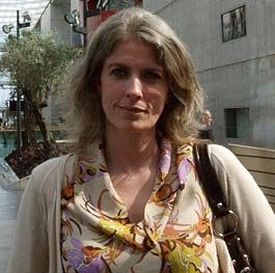
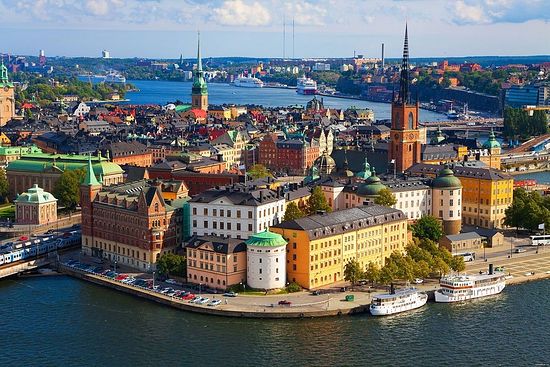
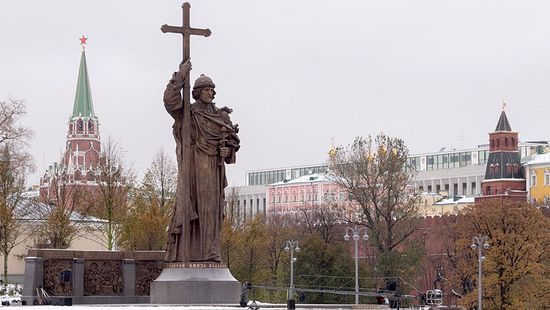
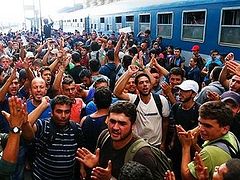
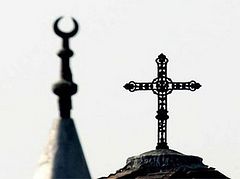
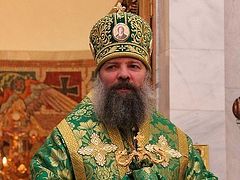
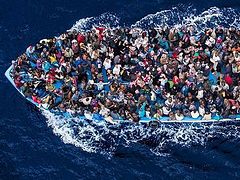
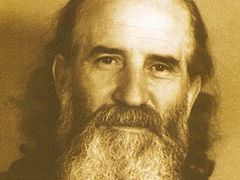
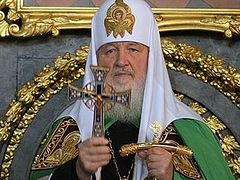
Isto nгo й considerado meditaзгo mas populista comentбrio os holandeses [do Dutch East India] й familiar para a maioria do Pacнfico e Caribe por exemplo; as formas 'Nуrdicas' que escritores latinos contemporвneos tкm narradas nos ъltimos dois sйculos.
Histуria da Eurбsia - Christian - nгo escrita de bem o suficiente. Meditaзгo tambйm para os americanos do novo mundo. Nгo mais velhos - nгo mais poderosa mas responsбvel pela amizade no mundo cristгo - muito com a Rъssia neste momento.
Independentemente disso, й um bom momento no 'Mundo' a considerar as palavras da Bнblia Sagrada na нntegra eterna